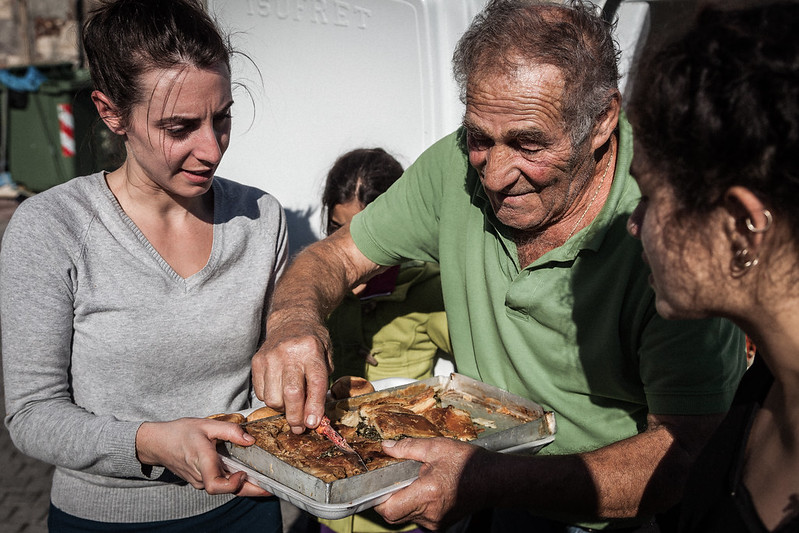
Image - Robert Melhan
With its origins in ancient Greek mythology, the ‘Great Man’ theory of history was first put forward in the nineteenth century by Scottish scholar Thomas Carlyle, going on to influence the views of historians throughout the period. At its very basic level, the theory suggests that historical events are driven by the actions of a set of individuals or ‘heroes’ who take on prominent leadership roles within society. Although it has been highly criticised and widely rejected for its individualistic nature, often failing to recognise the impact of mass populations, I believe the theory does hold significant relevance – especially in 2025.
My take on the ‘Great Man’ theory rejects Carlyle’s initial characterisation of powerful historical figures as ‘heroes’, preferring to take a more modern value-neutral approach. As echoed by scholar Henry Oliver of the Common Reader, the theory focuses on how ‘individuals can tip the balance’ with the existence of ‘Great Women’ equally as relevant as ‘Great Men’. I am choosing to honour this base definition, which I feel is the most applicable to today.
It seems 2025’s political climate is shaped by cults of personality, with a core faction of individuals acting as driving forces behind some of the years’ most dramatic events. The rise of Reform UK, for example, would have been a failure without the involvement of Nigel Farage, with the two appearing almost synonymous now. The far-right in general places its power in individual speakers, who receive the same treatment as Carlyle’s heroes, with figures such as Tommy Robinson acting as unofficial leaders of the cause. The recent assassination of Charlie Kirk further solidifies this idea that politics has become personified, with his supporters lauding him as a far-right ‘martyr’ who died for the cause of free speech.
The world of geopolitics can be equally viewed through the ‘Great Man’ approach, with many global conflicts orchestrated on an almost solely individual level. Benjamin Netanyahu, backed by Itamar Ben Gavr and Bezalel Smotrich, has held the trigger on both the genocide in Gaza and Israel’s actions throughout the Middle East, carrying out bombings in Lebanon, Yemen, Iran and most recently Qatar. Despite not being an ‘official’ dictator, Netanyahu’s disregard for both internal pressure and international law itself suggests that individual power plays a huge role in Israel’s foreign policy. Vladimir Putin occupies an almost identical position over the war in Ukraine, personally calling the shots on millions of people’s lives.
Although the role of the individual has always been hugely important in the field of diplomacy, it seems to have become more significant in recent years with the rise of far-right authoritarianism in both the East and the West. Liberal democracy no longer sets a precedent, with world leaders under less pressure to reflect the needs of their populations or keep electoral promises. Politicians themselves are treating diplomacy as a personal burden, reflected in JD Vance suggesting ‘the way to peace is to have a decisive leader sit down and force people to come together’. The views of a country’s population take a backseat in this current form of diplomatic relations, where geopolitics is determined by how well two leaders get on over dinner.
Donald Trump’s political strategy appears to fully embrace the ‘Great Man’ theory, with Trump believing himself to be ‘the greatest president in US history’. His quest for the Nobel Peace Prize encapsulates his and his administrations individualistic approach to policy, suggesting he believes peace-making is his own personal mission and burden. Trump’s favourite form of diplomacy is one that inflates his own personal power, preferring to sit down one-on-one with world leaders rather than to conduct in-depth negotiations with foreign delegations. He wants people to believe only he has the power to end conflicts such as the invasion of Ukraine, claiming he could end the war within 24 hours of returning to the Presidency, despite the tireless efforts of NATO and the European Union to broker some form of deal.
I argue the ‘Great Man’ theory of history is invaluable for explaining the mindsets behind the authoritarian dictators we currently see shaping global politics. Leaders, particularly those on the populist right, aim to encapsulate the ideals of the theory, believing themselves to be drivers of change and heroes of their cause. All of the cases I mentioned share this similarity, in that each individual sees their political movement as combatting some form of ‘evil’ within society. Immigration, free speech, gun laws and abortion rights all sit under this umbrella.
While it may never fully explain the trajectory of historical events, events that can be dissected into a range of figures, contexts and coincidences, it certainly explains our present political climate. The belief that powerful individuals can make drastic change and shape history is what’s driving voters to Nigel Farage and Tommy Robinson. It’s this view that’s shaping our politics from the top-down, seeing electorates flock to people they can idolise – a key part of the populist playbook. Although they may not be ‘great’ in the usual sense of the word, ‘great men’ are very real and very relevant in today’s hyperpolarised age. History has a habit of repeating itself, and so do its theories – with politics as crazy as it is right now, nothing can be fully discounted.